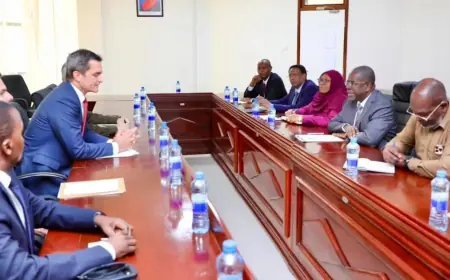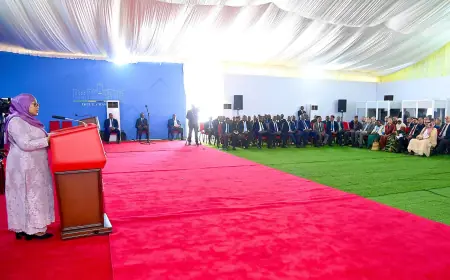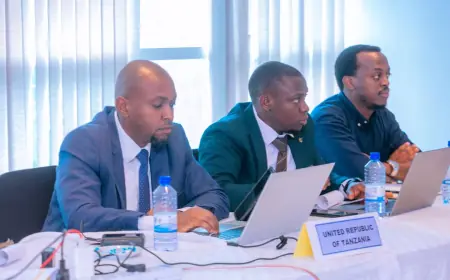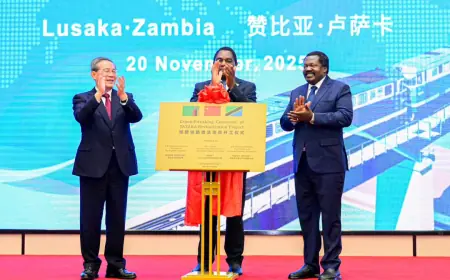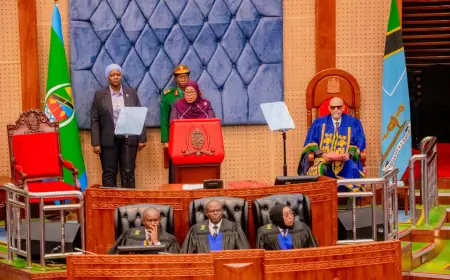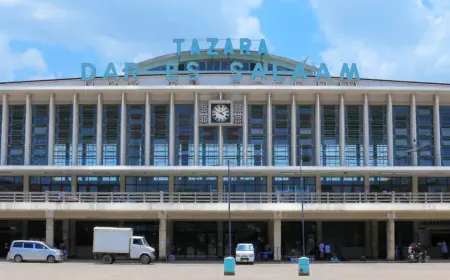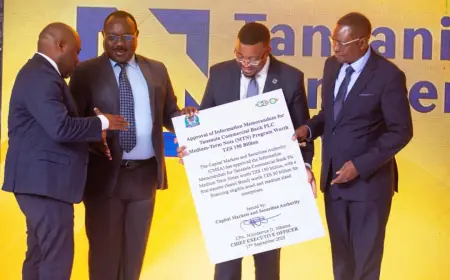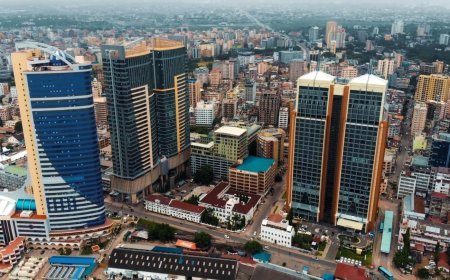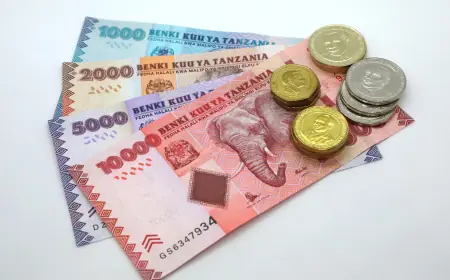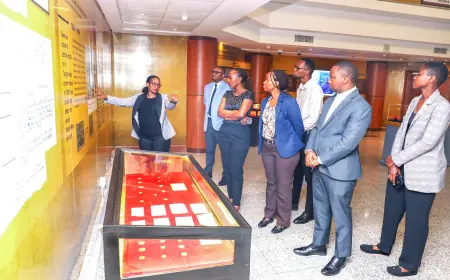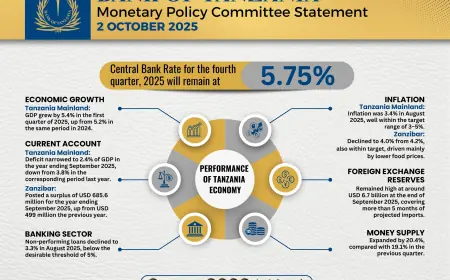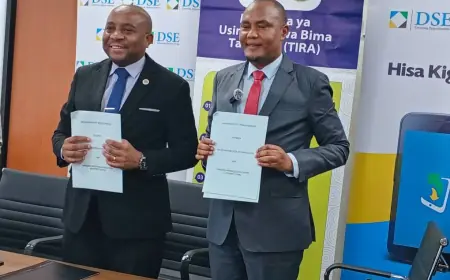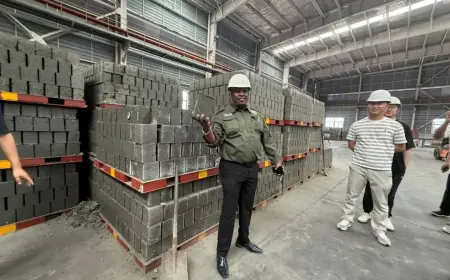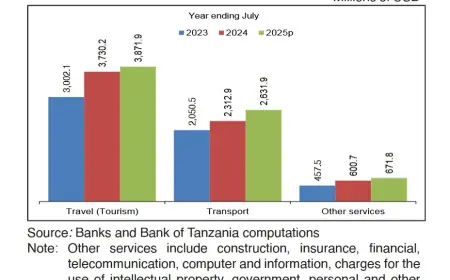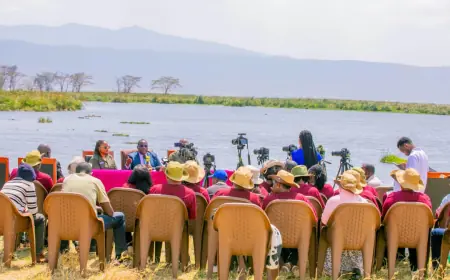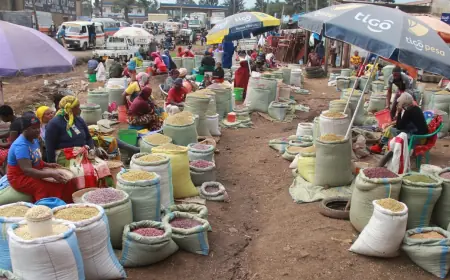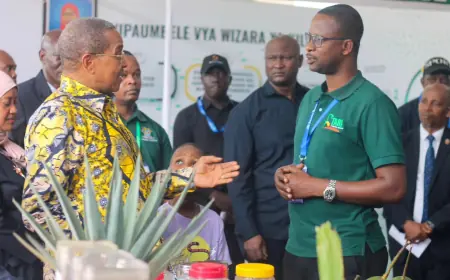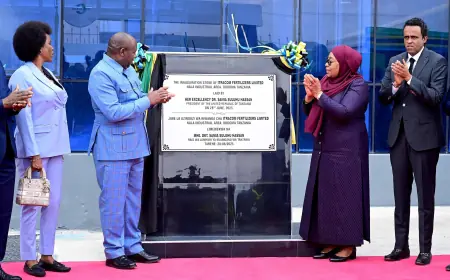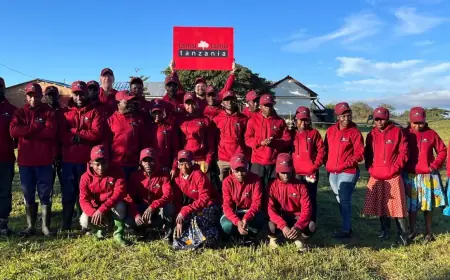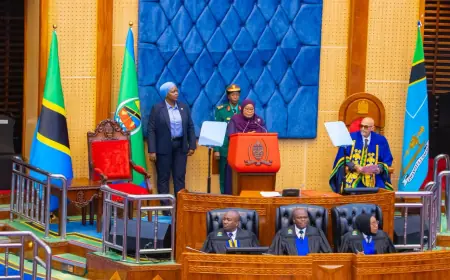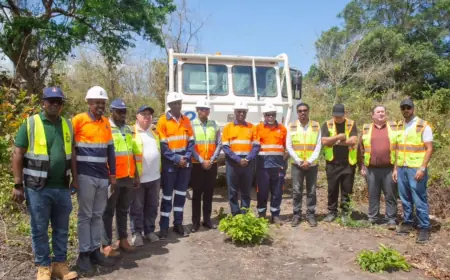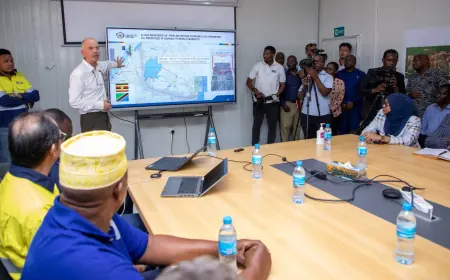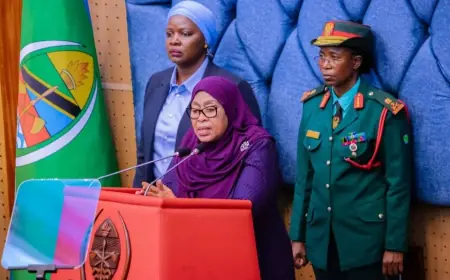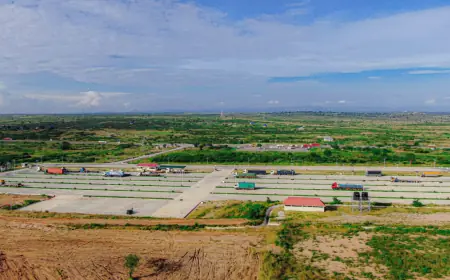Tanzania moves to reclaim small business space for citizens
The move, part of the amendments introduced under the Finance Act, 2025, was enacted through Government Notice No. 487A published on July 28, 2025, under the Business Licensing (Prohibition of Business Activities for Non-Citizens) Order, 2025

Dar es Salaam. The Tanzanian government has formally prohibited non-citizens from engaging in 15 categories of business activities traditionally dominated by local entrepreneurs.
The move, part of the amendments introduced under the Finance Act, 2025, was enacted through Government Notice No. 487A published on July 28, 2025, under the Business Licensing (Prohibition of Business Activities for Non-Citizens) Order, 2025.
It marks a strategic policy shift aimed at curbing growing foreign encroachment, particularly by Chinese nationals, into Tanzania’s micro and small enterprise space.
The directive follows a crescendo of grievances from local traders, whose livelihoods have come under pressure from foreign entrants accused of exploiting regulatory loopholes, evading taxes, and flooding domestic markets with low-cost goods and services.
At the centre of these tensions lies Dar es Salaam’s commercial hub, Kariakoo, where a quiet but sweeping takeover of retail stalls, repair shops, and logistics services by foreign actors had begun to undermine indigenous entrepreneurship.
A Systemic Threat to Local Capital
Behind this bold legislative step is a damning ministerial report that exposed how thousands of foreign operators, some without valid immigration status, had fraudulently registered businesses using Tanzanian identities, often by co-opting locals’ National Identification Authority (NIDA) numbers.
The 15-member ministerial committee, commissioned in February 2025 by the minister of Industry and Trade, Dr Selemani Jafo, under the instruction of President Samia Suluhu Hassan, found that foreign traders were using these proxy arrangements to bypass legal restrictions and shield themselves from taxation and accountability.
The practice, widespread in Kariakoo and increasingly replicated across secondary towns, was also linked to a rising number of unpaid debts incurred in the names of unaware Tanzanians.
Equally alarming was the revelation that some foreigners were operating without valid work permits, or with permits bearing no relation to the activities they undertook—such as professionals licensed as engineers or consultants actively engaging in retail and distribution.
"This country cannot be a playground for regulatory manipulation," Dr Jafo declared during a field visit in May. "We are witnessing foreigners hiding in warehouses, engaging in undocumented trade, and distorting competition. It is not only illegal—it is economically unjust."
The Prohibited Activities
To stem the tide, the government has now explicitly banned non-citizens from undertaking the following activities:
· Wholesale and retail trade (excluding supermarkets, specialised product outlets, and wholesale centres for local producers).
· Mobile money transfer services.
· Repair of mobile phones and other electronic devices.
· Salon operations (except in hotels or for tourism purposes).
· Home, office, and environmental cleaning services.
· Small-scale mining.
· Postal and parcel delivery services within the country.
· Tour guiding services within Tanzania.
· Operation of museums and curio shops.
· Establishment and operation of radio and television stations.
· Brokerage and agency services in business and real estate.
· Clearing and forwarding services.
· On-farm crop purchasing operations.
· Ownership or operation of gambling machines or devices, unless located within a licensed casino.
· Ownership and operation of micro and small industries.
The Order takes immediate effect, with licensing authorities barred from issuing or renewing licences for these sectors to non-citizens. Any foreign national caught operating in these sectors now faces a fine of not less than Sh10 million, imprisonment for up to six months, or both. In addition, they risk revocation of their visa and residency permits.
Tanzanians found aiding or fronting for foreign actors in prohibited activities are equally liable, facing a fine of Sh5 million or a three-month jail term.
However, the government has allowed a transitional cushion: foreign nationals currently holding valid licences in the affected sectors may continue operations until their current licences expire—but no renewals will be permitted thereafter.
Enforcement and the Policy Architecture
To give teeth to the new directive, the Immigration Department launched a special crackdown earlier this year, netting 7,900 foreign nationals operating without proper permits. Of these, 4,796 have been deported, 703 fined, and 257 have since regularised their documentation. BRELA (Business Registration and Licensing Agency) has also intensified inspections to identify businesses falsely registered under Tanzanian ownership.
Deputy Permanent Secretary in the Ministry of Industry and Trade, Dr Suleiman Serera, revealed that a broader legislative overhaul is in motion. “We’ve completed a draft amendment of the Companies and Business Licensing laws to better define which activities are for Tanzanians and which are open to foreign investment,” he said, adding that enforcement teams are already on the ground.
A Balancing Act between Sovereignty and Investment
While the government's intent is unequivocal—to restore space for indigenous enterprise—the policy has sparked mixed reactions in some quarters.
Advocates see it as a long-overdue remedy to a systemic distortion of the local economy.
Critics, however, warn that the message could be misread by the broader investment community, potentially raising concerns about xenophobia or unpredictability in business regulation.
In Kenya politicians and lawmakers have protested government’s move saying it is a xenophobic move that is against the spirit of East African Community integration process.
Still, authorities insist the distinction is clear: strategic sectors such as energy, infrastructure, manufacturing, and finance remain open to genuine foreign investment, subject to appropriate licensing and compliance.
What is off-limits are the small-scale, low-barrier enterprises that Tanzanians can and should thrive in—if given fair ground.
“This is not about isolationism,” said an official close to the policy drafting. “It is about removing unfair competitive advantages created by unlawful or dishonest participation in sectors reserved for citizens.”
Enforcement
With enforcement ramping up and legal reforms in motion, the spotlight now shifts to implementation integrity.
Historically, Tanzania’s bold regulatory ambitions have often faltered at the point of enforcement, weakened by corruption, vested interests, and administrative inertia.
If that pattern repeats, this latest effort may amount to little more than ink on paper.
But if consistently enforced and accompanied by entrepreneurial support for Tanzanians—especially in access to credit, training, and formalisation—the Order could rewire the small business landscape, providing the breathing space local traders have long demanded.
For now, the message is unmistakable: the government is reclaiming the informal economy—and it expects all players to fall in line.
What's Your Reaction?
 Like
0
Like
0
 Dislike
0
Dislike
0
 Love
0
Love
0
 Funny
0
Funny
0
 Angry
0
Angry
0
 Sad
0
Sad
0
 Wow
0
Wow
0

